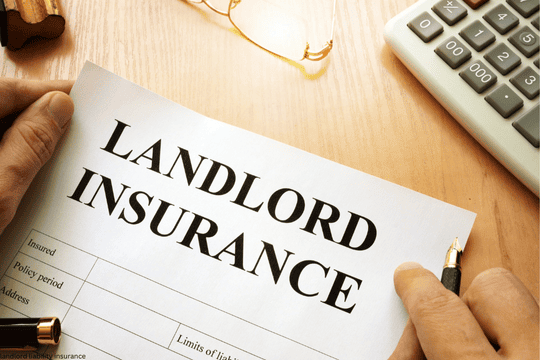A tenant slips and falls on your property, leading to a costly lawsuit. Or a fire breaks out, causing extensive damage and leaving you financially vulnerable. Without landlord liability insurance, these scenarios could spell disaster for your rental income.
In this comprehensive guide uncover the secrets of landlord liability insurance how it works why it’s essential, and how you can use it to shield your income from unexpected disasters. Whether you’re a seasoned landlord or just starting out, this article will equip you with the knowledge to make informed decisions and protect your investment.
What is Landlord Liability Insurance?
Landlord liability insurance is a specialized policy designed to protect property owners from financial losses due to accidents, injuries, or property damage that occur on their rental premises. Unlike standard property insurance, which covers physical damage to the building, liability insurance focuses on legal and medical expenses arising from tenant-related incidents.
Key Benefits of Landlord Liability Insurance:
- Financial Protection: Covers legal fees, medical bills, and settlement costs.
- Peace of Mind: Safeguards your rental income against unforeseen events.
- Legal Compliance: Meets lease agreement requirements and local regulations.
Why Every Landlord Needs Liability Insurance
1. Protect Your Income from Lawsuits
Tenant-related accidents can lead to expensive lawsuits. For example, if a tenant or visitor is injured on your property, you could be held liable for medical expenses and legal fees. Landlord liability insurance ensures you’re covered, so your rental income remains intact.
2. Cover Property Damage Costs
Accidents happen fires water damage or vandalism can wreak havoc on your rental property. Liability insurance helps cover repair costs, minimizing out-of-pocket expenses.
3. Comply with Lease Agreements
By securing a policy, you not only protect yourself but also build trust with tenants.
7 Hidden Secrets of Landlord Liability Insurance
1. It Covers More Than You Think
Beyond accidents and injuries, landlord liability insurance can cover:
- Legal defense costs
- Lost rental income during repairs
- Damage caused by tenants
2. You Can Customize Your Policy
Tailor your coverage to suit your specific needs. For example, add umbrella insurance for extra protection or flood insurance if your property is in a high-risk area.
3. It’s Affordable Compared to Potential Losses
The average cost of landlord liability insurance is a fraction of what you’d pay in legal fees or repair costs. Think of it as a small investment for massive financial protection.
4. It Boosts Tenant Confidence
Tenants feel safer knowing their landlord is prepared for emergencies. This can lead to longer lease agreements and fewer vacancies.
5. It’s Not Just for Big Landlords
Whether you own one property or a dozen, landlord liability insurance is essential for all property owners.
6. It Can Save You from Bankruptcy
A single lawsuit could wipe out your savings. Liability insurance acts as a financial safety net, ensuring you don’t lose everything.
7. It’s Easy to Get Started
With online tools and expert advice, securing a policy is quick and hassle-free.
Real-Life Examples: How Liability Insurance Saved Landlords
Case Study 1: The Slip-and-Fall Incident
A tenant slipped on an icy walkway and sued the landlord for medical expenses. Thanks to landlord liability insurance, the landlord avoided paying $50,000 out of pocket.
Case Study 2: The Fire Damage Disaster
A kitchen fire caused $30,000 in damages. The landlord’s liability policy covered repairs and temporary relocation costs for the tenant.
How to Choose the Right Landlord Liability Insurance
1. Assess Your Risks
Consider factors like property location, tenant demographics, and local regulations.
2. Compare Policies
Shop around for quotes and compare coverage options. Look for policies that offer comprehensive protection at a reasonable price.
3. Read the Fine Print
Understand exclusions, deductibles, and coverage limits to avoid surprises.
4. Consult an Expert
Work with an insurance agent who specializes in landlord policies to find the best fit for your needs.
Common Myths About Landlord Liability Insurance
Myth 1: My Homeowner’s Insurance Covers Rentals
Fact: Homeowner’s insurance typically excludes rental properties. You need a separate landlord liability insurance policy.
Myth 2: I Don’t Need It If My Property is Safe
Fact: Accidents can happen anytime, even in well-maintained properties.
Myth 3: It’s Too Expensive
Fact: The cost of insurance is minimal compared to potential losses.
Conclusion
Being a landlord is rewarding, but it’s not without its risks. Accidents, lawsuits, and unexpected disasters can threaten your rental income and financial stability. That’s where landlord liability insurance steps in it’s your shield against the unpredictable. By investing in the right coverage, you’re not just protecting your property; you’re securing your peace of mind and ensuring your hard work pays off for years to come.
Don’t wait for a crisis to realize the importance of being prepared. Take action today. Explore your options, choose a policy that fits your needs, and rest easy knowing you’ve got a safety net in place. Your future self will thank you.
FAQs
1. What Does Landlord Liability Insurance Cover?
It covers legal fees, medical expenses, and property damage caused by tenant-related incidents.
2. How Much Does It Cost?
The average cost ranges from 500to1,000 annually, depending on factors like property size and location.
3. Is It Mandatory?
While not always legally required, it’s highly recommended for all landlords.
